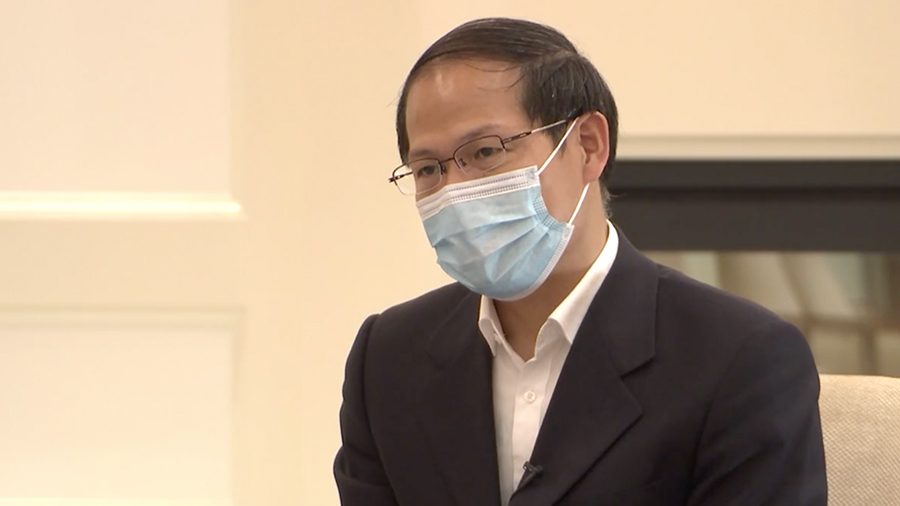03:46

As global COVID-19 cases continue to mount, public concern has risen over asymptomatic COVID-19 patients – those who carry the virus and are possibly infectious but do not exhibit any of the associated symptoms of the illness. However, experts suggest the potential existence of asymptomatic carriers is not a "big problem." Although there are no statistics on the matter, the public should still be on alert to complete the prevention work.
Will asymptomatic patients spread the virus?
Asymptomatic COVID-19 patients usually show less clinical symptoms, such as fever and fatigue, but their nucleic acid tests are positive. In a nutshell, some people are virus carriers, but they don't get sick and have manifest symptoms.
However, should people be concerned about asymptomatic COVID-19 cases in China? Respiratory expert Zhong Nanshan told CGTN in a previous interview that he does not believe there is a large number of such cases in China.
He explained that as the number of newly confirmed domestic infections has remained at zero in most parts of China, the number of asymptomatic cases is likely to be very low as well.
Identifying and preventing asymptomatic COVID-19 cases
Identifying and isolating asymptomatic people is a vital strategy in containing the spread of COVID-19. Jiang Rongmeng, a member of a senior-level expert team convened by China's National Health Commission to combat the virus, told CCTV that in the previous containment of COVID-19, the country had already managed asymptomatic patients.
01:09

"When finding asymptomatic infected people, we should report the case within two hours, and the person needs to be quarantined. At the same time, we should carry on the epidemiological investigation on the asymptomatic patient, that is to say, people who are related to him/her or have had contact with him/her, should also be included in the investigation," Jiang stated, adding that most asymptomatic people are close contacts or family members of confirmed COVID-19 patients.
When facing asymptomatic individuals, Jiang suggested that if someone around you is a confirmed COVID-19 patient, it's important for you to take the nucleic acid test. Even if the result is positive, there is no need to worry too much. As of now, the clinical outcomes for patients without symptoms in early diagnosis seem to be positive.
"The COVID-19 crisis is not over yet, so every one of us has to be on alert to complete the prevention work," Jiang warned.